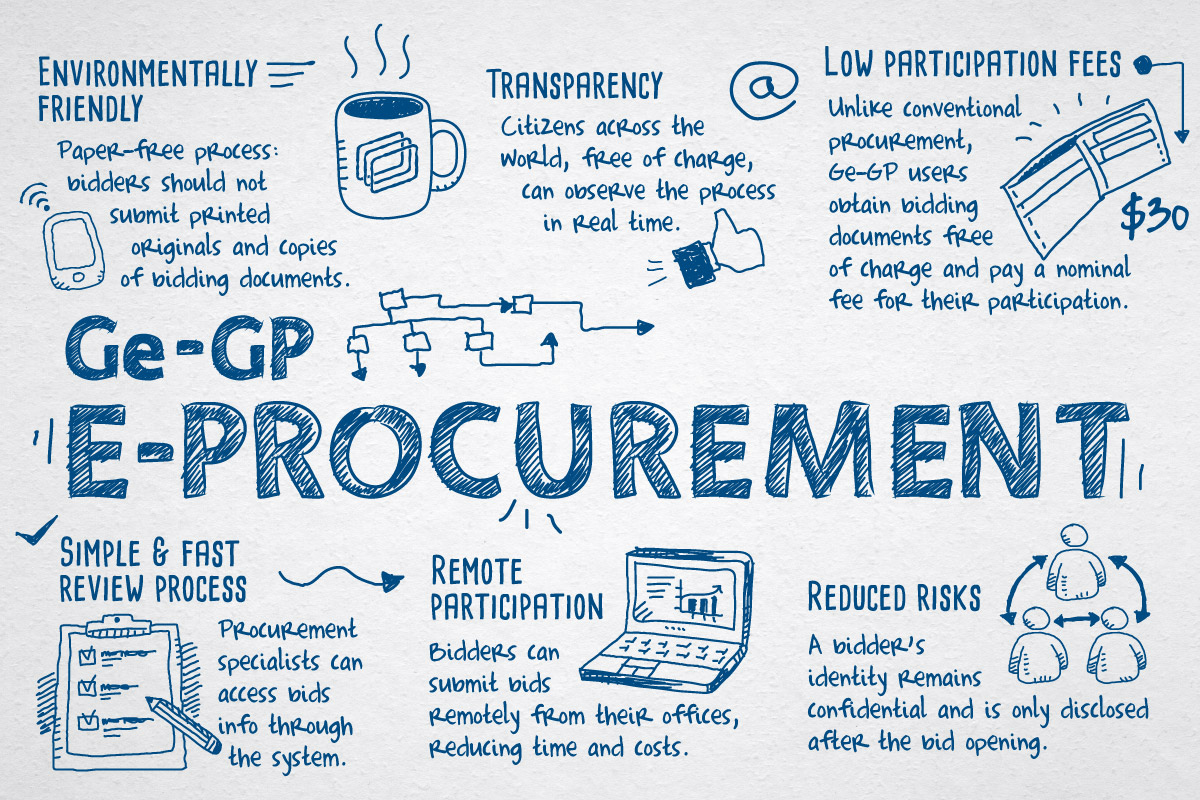Public procurement is at the core of how government conducts its business. As such, reforming procurement systems can prove transformational for development in any country.
In Georgia, the introduction of e-procurement through the Georgian electronic Government Procurement (Ge-GP) system is a good example of how strong political will and commitment can be critical in the context of reforming public procurement. Within a year, the State Procurement Agency of Georgia (SPA) designed, developed, and tested the e-procurement system and eventually moved to the mandatory use of e-procurement, fully replacing paper-based tenders.
The e-procurement system, which is broadly consistent with good public procurement practices, has increased competition among suppliers. In addition, by bringing processes online, it has made the procurement system more transparent, less bureaucratic, and less discriminative. As a result, the system has significantly minimized corruption risks and brought substantial savings to the government and Georgia's citizens.
The reform of e-procurement is clearly one of the most effective and efficient reforms undertaken in the last decade in Georgia. It has also been well received by procuring entities and the private sector alike.
The remarkable achievements of SPA have been explicitly acknowledged by different international organizations including the OECD, the United Nations and Transparency International, the latter ranking Georgia as the best country among the 19 countries of Eastern Europe and Central Asia in its 2014 Corruption Perceptions Index.
This success comes as a result of a longstanding partnership between the World Bank and the government of Georgia. In 2012, the World Bank started an assessment of the Georgian e-procurement system in order to explore the possibility of using the same system for World Bank-financed projects. The assessment identified improvements and modifications required to make the e-procurement system meet the World Bank’s requirements for the procurement of civil works and goods.
SPA undertook these modifications and, after almost two years of extensive internal work and close cooperation with the government and the private sector, the World Bank started using Georgia’s e-procurement system for the procurement of civil works with an estimated contract price below US$ 10 million, as well as for the procurement of goods below an estimated contract price of US$ 1 million. As of today, two major project implementation units have published 14 tenders with a total estimated value of more than US$ 22 million for the rehabilitation of roads, buildings, sewage systems, and similar.
In this context, there have been some major modifications of the e-procurement system:
- E-Reverse Auction is not applicable;
- Estimated contract price is disclosed. However, bidders can price their bids below or above such estimations;
- Bids are disclosed in the system only if bidders agree. It should be noted that no single case has been reported where bidders refused to disclose their bids.
To support the sustainability of these changes, the World Bank has also conducted a number of training sessions and workshops for a wide-range of participants on these subject areas.
So, what are the demonstrated benefits of using an e-procurement system?
Environmentally friendly procurement - reduced paper-based procurement (bidders are no longer required to submit printed originals and copies of bids).
Transparency - citizens across the world, completely free of charge, can observe the tendering process in real time and obtain essential information regarding bids (an example from Georgia).
Four times reduced fee for participation – Procurement conducted in a conventional way requires paying a non-refundable fee for obtaining bidding documents in the amount of $100-150, while Ge-GP system bidders obtain bidding documents free of charge and pay a nominal fee of $30 for their participation.
Simplified and accelerated review process by the World Bank – No need to obtain actual bids for review; the World Bank’s procurement specialist is granted special access to download bids through the system.
Remote participation – Bidders (even if several hundred kilometers away from the capital) can submit bids remotely from their offices, thereby substantially reducing the time and cost associated with transportation.
Substantially reduced risk of collusion among bidders – A bidder’s identity remains confidential and is only disclosed after the bid opening.
By using the Ge-GP system, Georgia is fully in line with the Bank’s ongoing procurement policy reform, which advocates using country systems to the extent possible, and also with e-Procurement under the Bank’s projects, which is fully aligned with the Open Contracting Partnership, a group that aims to create a global movement advocating for disclosure of information across the contracting cycle (including disclosure of contracts) and across all sectors, and that promotes greater citizen participation around contracting.
Ultimately, the e-procurement system in Georgia has clear, measurable benefits, and is contributing in a significant way to the long-term development of the country.

